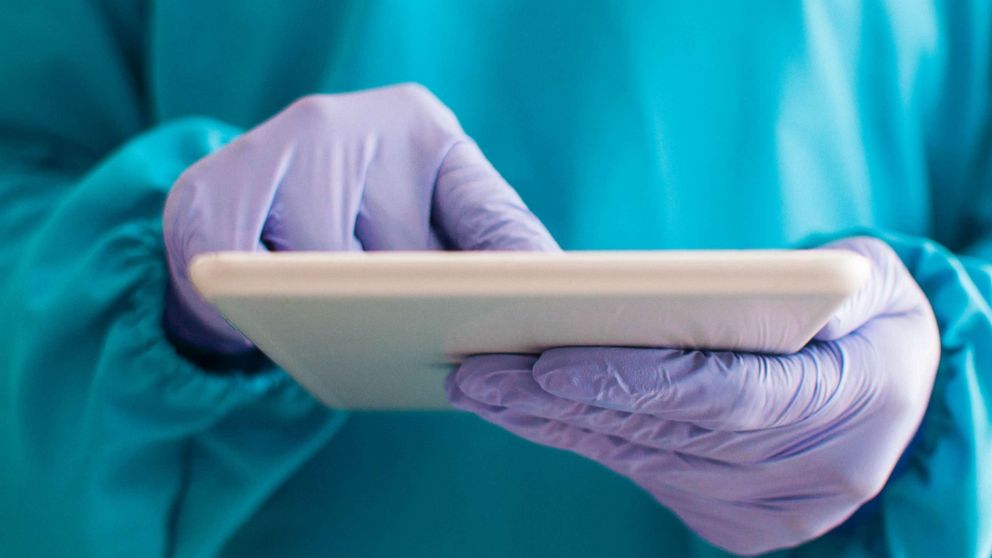


Dr. Steven Brown is on the front line of the battle against the surge of COVID-19 cases. But for him, the front line is also the home front.
Working overnights, the 66-year-old critical care specialist manages hundreds of intensive care unit patients in hospitals across the Midwest, more than half of them COVID cases, many on ventilators. And he does it from his living room in suburban St. Louis.
Sitting before an array of four large computer screens and two laptops, he compares his work to that of an air traffic controller. He can read charts, scans, X-rays and even look in on patients with the help of sophisticated cameras in the ICUs.
MORE: After hospital CEO Dr. Leon Haley's tragic death, hundreds get vaccinated in his honor“Each room has its own camera in it and I'm remotely operating it,” he told ABC News.
So despite being distant from his patients, his care is intimate. “I can look in a throat. I can look at how they're using their muscles of respiration and whether they have disordered breathing. I'm able to do extreme fine-tuning of the ventilator settings for patients.”
And lately, more and more of his cases are COVID patients on ventilators. On his regular 12-hour shifts, he reports that the “amount of disease I am seeing is amplified. While some critical care doctors on a night shift might be managing eight or 10 patients with COVID-19 who are on ventilators for their shift, I'm managing 10 times as many because I'm managing patients in multiple sites.”
MORE: Texas father strips down to swimsuit to take stance on school mask mandatesRemote care is not new for Brown, who had been working that way alongside colleagues at Mercy Virtual Care Center for more than 12 years. However, age and other factors put him at higher risk for COVID-19. So, when the pandemic struck, he got installed in his home the equipment needed to continue working there and has done so now for more than a year and a half.
“There are a lot of telemedicine physicians and providers and vendors out there,” Bethany Pope, spokesperson for Mercy Virtual, told ABC News. “There are likely very few who are doing critical care medicine from home.”
Working from home, however, does not mean working less. Brown forecasts that the surge in the disease will mean a surge in his already grueling work schedule, from 10 straight days of 7 p.m. to 7 a.m shifts to 12 days in a row or more.
But while the current situation is grim, he thinks a good outcome is still possible, perhaps even a Hollywood ending. “Initially this felt, at the end of 2020, as being like the end of the first original Star Wars movie,” he said. “We're in the 'Empire Strikes Back' right now with the delta variant. And we're going to have a happy sequel, but there's a lot of work ahead for us.”